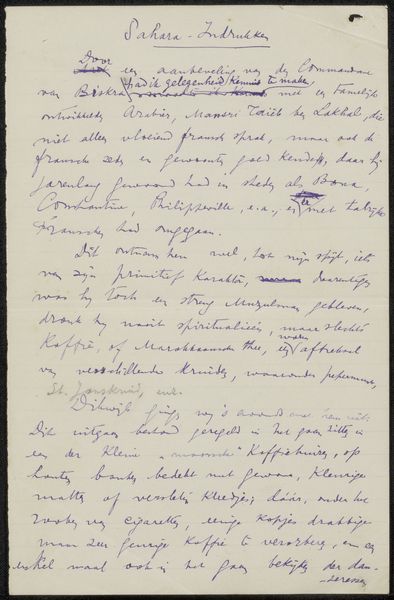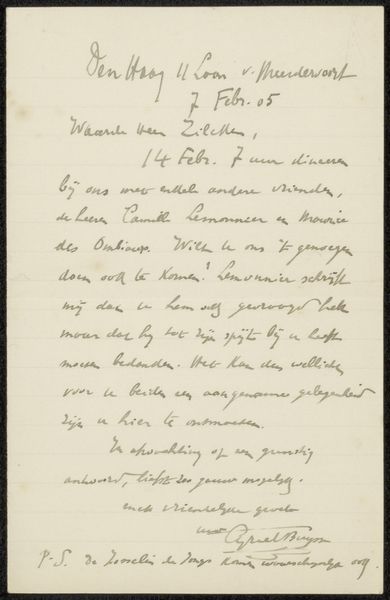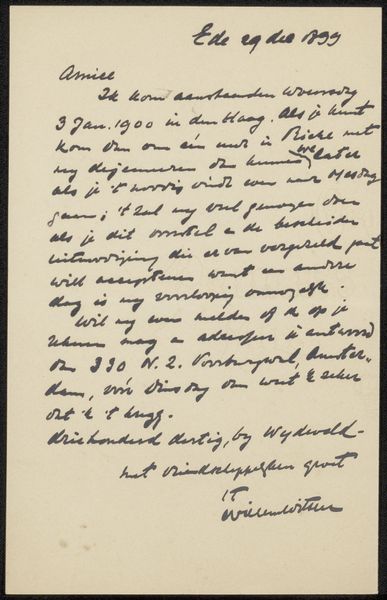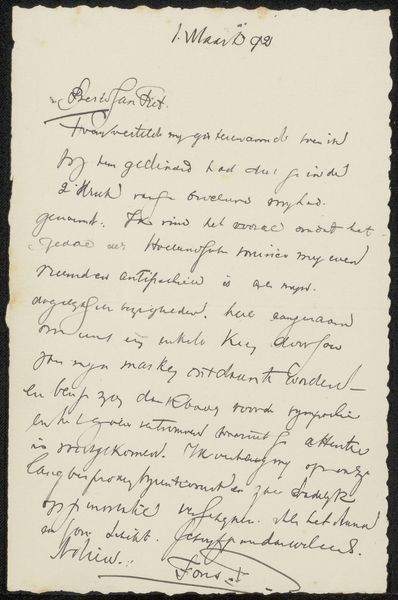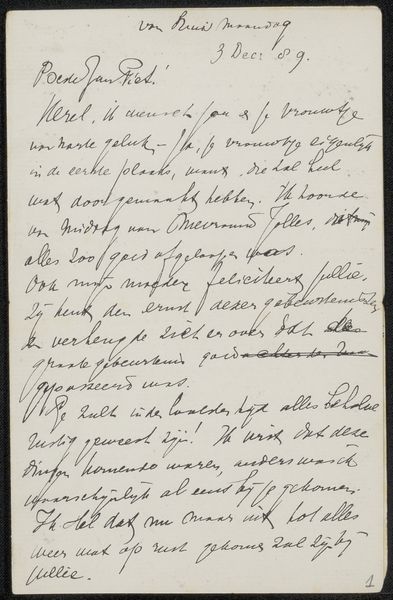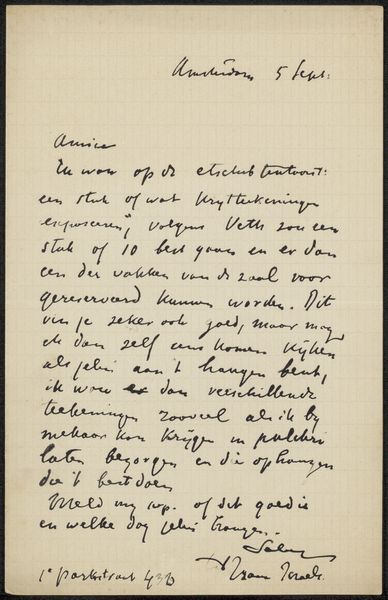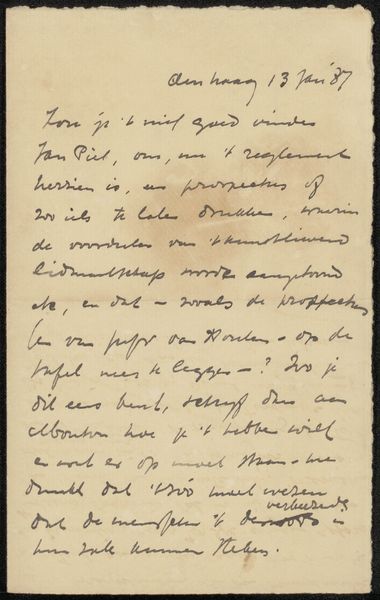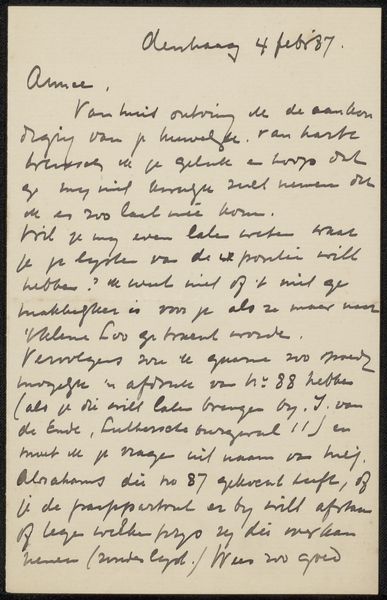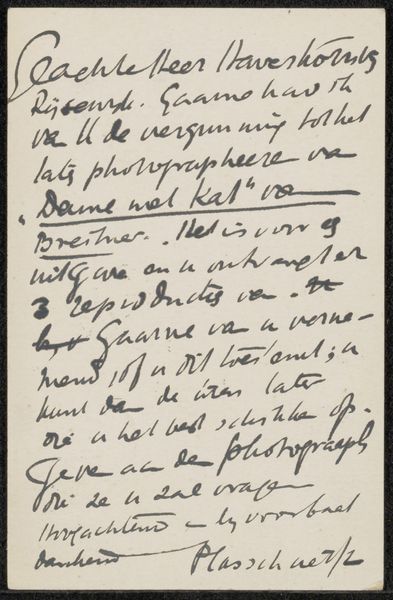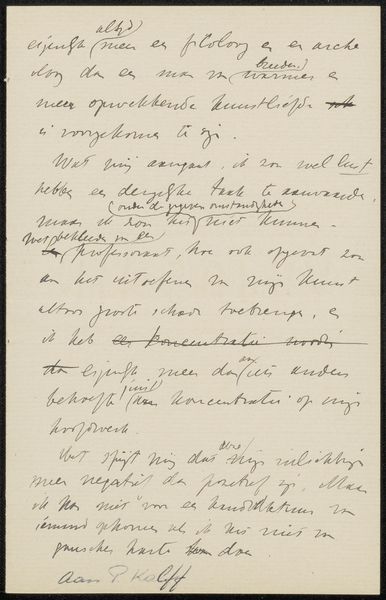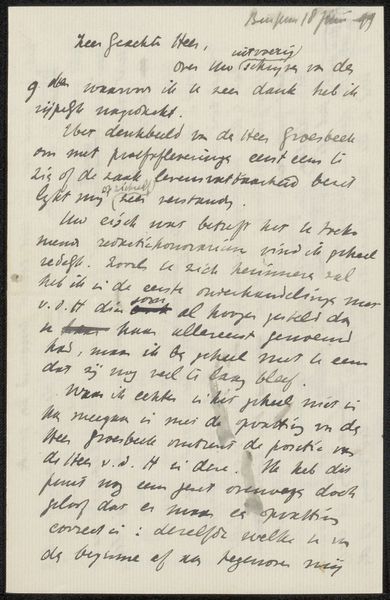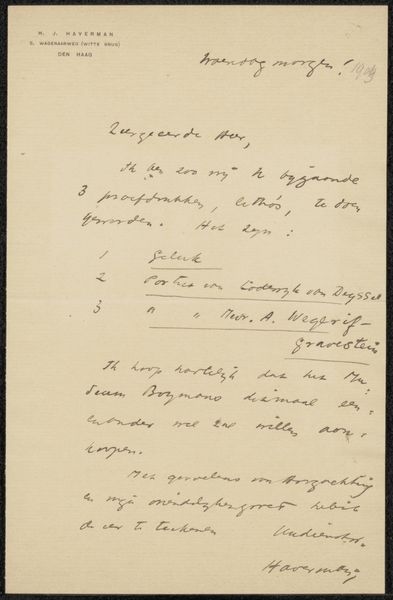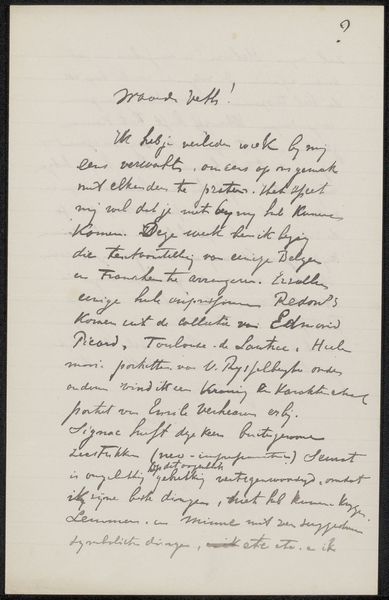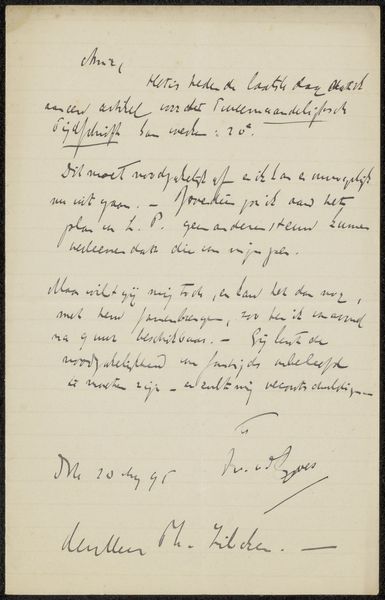
drawing, paper, ink, pen
#
portrait
#
drawing
#
hand-lettering
#
impressionism
#
old engraving style
#
hand drawn type
#
hand lettering
#
paper
#
personal sketchbook
#
ink
#
hand-drawn typeface
#
pen-ink sketch
#
pen work
#
sketchbook drawing
#
pen
#
sketchbook art
Copyright: Rijks Museum: Open Domain
Editor: So, here we have Willem Witsen’s "Brief aan Jan Veth," possibly from 1887. It’s a drawing done in ink on paper and is held at the Rijksmuseum. It just looks like handwriting on a page, but there's something compelling about it. What do you see in this piece beyond just the written word? Curator: I see more than a simple letter; I perceive a powerful symbol of connection and memory. Look at the careful script—each stroke of ink carries not just information, but also the artist's intention, emotion, and presence. Letters, like portraits, act as a substitute for the body. It attempts to convey intimacy. What do you make of the controlled nature of the script versus the apparent ease of the hand-drawn marks? Editor: That's interesting. I guess I assumed handwriting was always supposed to be impulsive, immediate. Curator: Exactly! That tension speaks volumes. The labor and careful nature can be thought of as another art medium. Editor: Wow, that’s something I hadn’t considered. The cultural memory embedded in everyday forms of communication, elevated through artistic intent... Curator: Precisely. Letters, sketches—they are vessels brimming with historical weight and personal significance. They remind us that art exists in the seemingly mundane. Editor: So it's not just the message in the letter but the entire act of creating it and how it represents Witsen's presence. Curator: You’ve grasped it. By slowing down, observing closely, we unearth layers of meaning concealed within seemingly ordinary objects. These connections endure, whispering stories of our shared humanity.
Comments
No comments
Be the first to comment and join the conversation on the ultimate creative platform.
